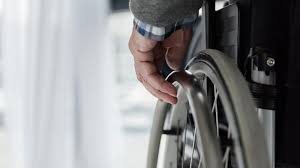The question of what is the difference between the second and third disability groups is relevant for many citizens facing health problems. Each group has its own characteristics, social guarantees, benefits, pensions and working conditions. Understanding the difference between these categories allows you to clearly define your rights and needs.
Main characteristics of disability group 2
The second group of disability is assigned to those whose health significantly limits their life and ability to work. It covers people with severe chronic illnesses, injuries or other disabilities that require additional support from the state or society. The specifics of this group include not only medical aspects but also social guarantees:
- Health condition: People in the second group have chronic illnesses or the effects of injuries that limit their ability to perform daily activities.
- Need for special conditions: Work is possible only if the workplace is adapted to the needs of the person.
- Social guarantees: The state provides benefits for the disabled of group 2, including free or reduced medical treatment, discounts on utility bills, and transport privileges.
The benefits provided for the second group make life much easier for people with disabilities, allowing them to lead a more comfortable lifestyle and have access to the necessary assistance.
Main characteristics of disability group 3
The third group of disabilities covers people with minor health impairments that have a moderate impact on their ability to work and daily activities. This group is for those who can perform most of their usual functions but need partial assistance or benefits:
- Health condition: The impairment is minor and does not require special conditions.
- Ability to work: People with the third group are able to perform most of their usual work duties without assistance.
- Social guarantees: Although there are fewer benefits for this group, there are still benefits for the disabled of group 3: discounts on public transport, partial exemption from certain taxes, and the possibility of receiving rehabilitation programmes.
Although this group provides fewer privileges, it provides basic support to improve the quality of life and maintain the ability to work.
How do I get a disability?
The disability application process can be complicated and requires careful preparation. It is important to understand each stage to avoid mistakes or delays. Following clear guidelines will ensure the successful completion of the procedure and obtaining the required status.
- Visit a doctor. The first step is to consult a specialist who will provide a referral to the Medical and Social Expert Commission (MSEC).
- Collection of documents. You will need: a passport or other identity document, medical certificates and extracts from medical records, examination results, and a doctor's referral.
- Passage of the MSEC. The commission assesses the state of health and determines whether it meets the criteria for a disability group.
- Obtaining a conclusion. After the decision is made, you receive a document confirming your status.
Accurately following each of these steps will help to avoid mistakes and ensure that you receive disability in a timely manner. If you have any difficulties, a lawyer can provide support at all stages, including preparation of documents and representation of your interests.
Important questions:
Question
Is it possible to appeal the assigned disability group?
Answer
Yes, the decision of the MSEC can be appealed by applying to a higher authority or to a court with the help of a lawyer.
Question
Does the place of residence affect the disability registration procedure?
Answer
No, the place of residence does not affect the procedure, but all documents must be submitted to the MSEC at the place of registration.
Legal assistance from ‘Consultant’:
Documentary support. A lawyer will help you collect all the necessary documents.
Defence in court. We represent your interests in case of appeal.
Speed. We speed up the process of disability registration.
Peace of mind. We provide legal support, relieving you of unnecessary worries.
Experienced attorneys of the legal service ‘Consultant’ will help you to properly register a disability and receive all the necessary social benefits and payments. Contact us for a free consultation so that we can help you understand your rights and find the best way out of your situation.
Understanding the difference between disability groups 2 and 3 is important in order to determine your rights and benefit from social guarantees. If you have any difficulties with registration of disability or appealing against it, please contact the legal service ‘Consultant’.



































